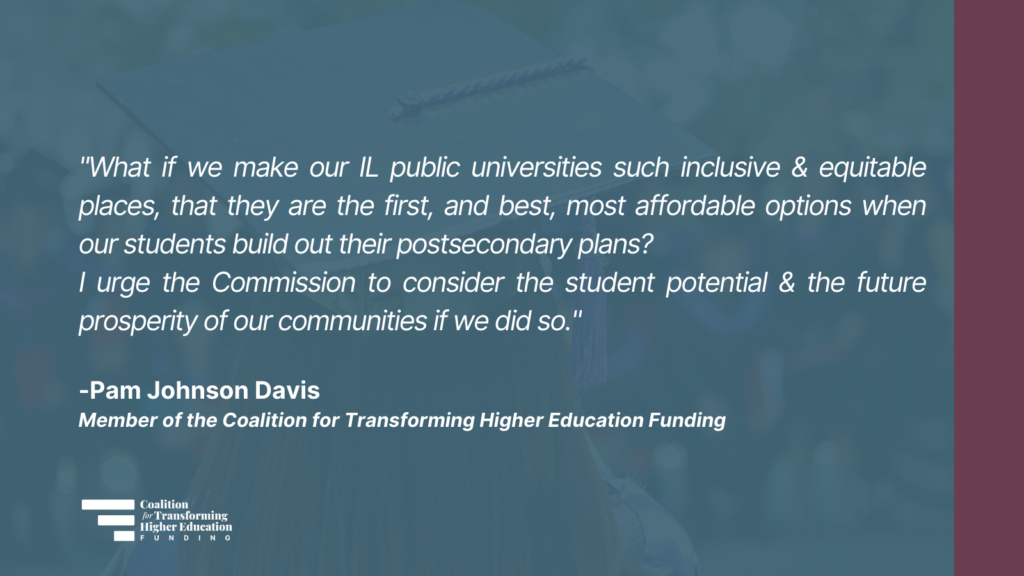At the June 29, Commission on Equitable Public University Funding meeting, Coalition for Transforming Higher Education member Pam Johnson Davis gave a powerful testimony as part of the public comment. As the Commission continues its work, we’re grateful to advocates like Pam for speaking up on the importance of the funding formula being adequate, equitable and stable.

Her full comment can be read below:
“Hi, my name is Pam Johnson Davis, I work in college student support in the nonprofit sector and I am a proud member of the Coalition for Transforming Higher Education Funding in Illinois. I am here to encourage the commission to center student affordability needs when considering equitable, stable public institutional funding. In my work, I have gotten the chance to sit down with many students who believe that attending an Illinois public institution won’t be the most affordable option for them. Instead, they look to institutions outside of Illinois that will offer them more money – more scholarships, more grants, more institutional funding. Unfortunately, often after these students leave our state to attend those colleges elsewhere, they encounter a new kind of inequity: loneliness. A campus community that isn’t familiar to them. Isolation & being far away from their loved ones and their homes. Many of them return to Illinois, but not always to college. They return feeling uncertain about their future, and their place in the world of higher education. What if we interrupted this pattern from the very beginning? What if we, as a state, committed to ensuring that however we scale up our funding for public universities, we require that money is spent towards equitably enrolling and serving our students? What if equity was centered on ensuring that Illinois students can afford to attend an Illinois college, without undue burden on themselves & their families? What if equity honed in on decreasing tuition and housing fees, and factored in other costs like transportation, food, and childcare? What if we make our Illinois public universities such inclusive & equitable places, that they are the first, and best, most affordable options when our students build out their postsecondary plans? I urge the Commission to consider the student potential & the future prosperity of our communities if we did so. On behalf of myself, and the students & families that I serve, I would like to thank the members of the commission for the opportunity to testify and we appreciate your consideration of our recommendation.”

